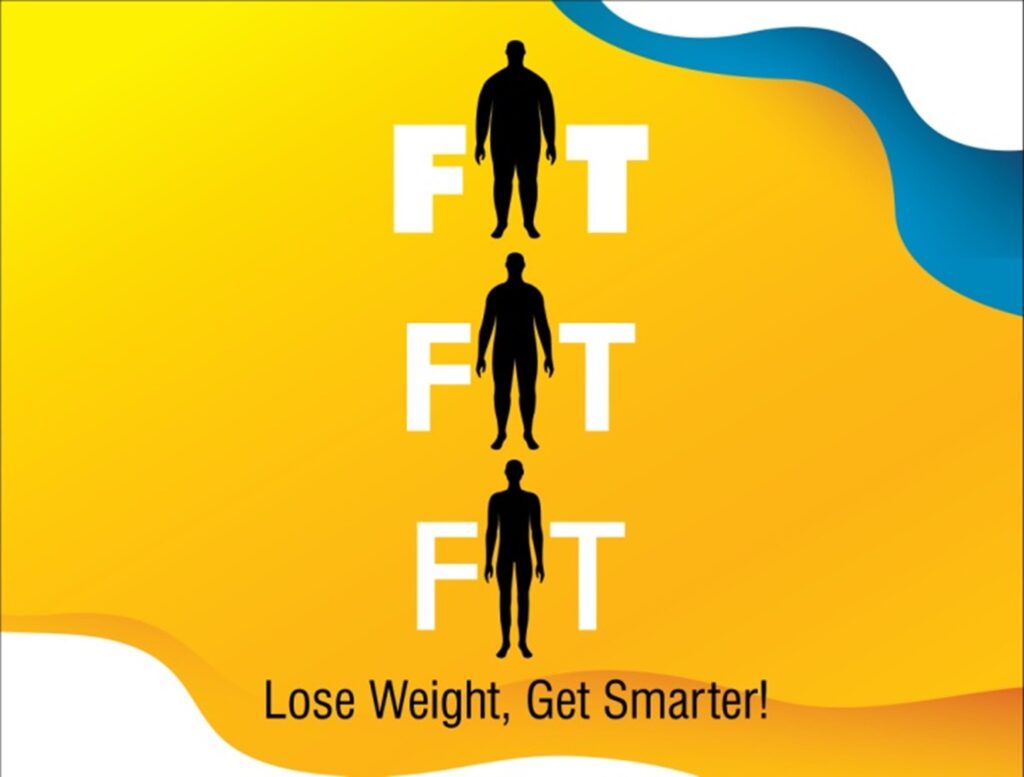
Sustainable weight loss is possible when an individual combines a scientifically developed meal replacement, acceptable physical activities, and calorie restriction. While many struggle with traditional methods, real-life clinical experiences have shown that a more integrated approach offers better outcomes. In this blog, we will delve deeper into these strategies, supported by expert opinions and experiences from leading medical professionals, highlighting how personalized weight loss plans have worked effectively in their practice.
The Importance of a Healthy Lifestyle and Physical Activity
A healthy lifestyle is the cornerstone of sustained weight loss. Consistent physical activity, such as walking at least 10,000 steps per day, enhances overall health, prevents lifestyle diseases, and helps create the necessary calorie deficit for weight loss. Dr. Tushar Mangeshkar, a renowned bariatric surgeon, has seen the benefits of regular walking combined with calorie control. He notes that many of his patients who embraced simple physical activities like walking pre-surgery, and continued it post-surgery, experienced faster recovery and better long-term results.
Calorie Restriction with Meal Replacement: A Balanced Approach
Calorie restriction remains a key component of weight loss, but the method should be sustainable. During intense weight reduction periods, aiming for 1000-1200 kcal per day is recommended. Incorporating scientifically developed meal replacements into the diet can make this process easier and more effective. These meal replacements should be:
High in protein and fiber: Protein promotes satiety and muscle preservation, while fiber aids digestion and prolongs fullness.
Rich in probiotics: Probiotics help maintain gut health, which is vital for weight regulation and overall well-being.
Containing L-leucine: This amino acid is known to help maintain muscle mass during weight loss and thus prevents weight regaining.
Thermogenic agents like green tea or garcinia: These natural ingredients help boost metabolism and accelerate fat burning.
Dr. Karunakara Reddy, an anti-aging specialist, has used the Maxlite meal replacement in over 120 patients with significant and consistent weight reduction results. According to him, the high protein content, combined with probiotics and thermogenic agents, made it easier for patients to stick to their calorie restrictions without feeling deprived.
Further he believes, the calorie restriction can be best achieved with a meal replacement because the average calorie offered by it is not more than 120-150 k cal as against a standard meal which will be around 500 kcal.
Addressing Common Misconceptions
Many people believe they are already doing enough but still struggle with weight loss. Let’s address some common misconceptions:
I’m already on a keto or low-calorie diet: While diets like keto can work initially, they can lead to nutritional imbalances. Moreover, not all bodies respond the same way. Dr. Vinod Jain, a gynecologist, points out that for women with PCOS or PCOD, keto diets are not always effective because these conditions involve hormonal imbalances that need specialized management. He has successfully used meal replacements along with exercise to help patients with PCOS achieve weight loss without the side effects of extreme dieting.
I’ve tried meal replacements, but they didn’t work
Not all meal replacements are created equal. Dr. Ravindra, a pulmonologist who deals with patients with asthma and COPD, emphasizes the need for scientifically formulated products that are high in protein and probiotics. He has seen significant improvements in the respiratory health and weight loss of his patients who follow a structured meal replacement plan alongside physical therapy and calorie control.
I increased my physical activity but still didn’t lose weight
Physical activity alone, without understanding metabolism, often doesn’t yield results. People with slow metabolisms need to engage in both exercise-assisted thermogenesis (EAT) and non-exercise activity thermogenesis (NEAT) to boost calorie burn. Dr. Renuka, a diabetologist, works with pre-diabetes patients and integrates NEAT and EAT strategies into their daily lives. She emphasizes that, along with meal replacements and calorie control, even small activities like walking or climbing stair case instead of taking lifts, cleaning the house can increase metabolism in this population. Standing and doing the job, walking while attending mobile phone calls are other good way to activate NEAT. It is scientifically proven that a well planned NEAT activity can add up to 20- 25% additional exercise benefits without actually doing.

Physiological Conditions: A Customized Approach
Weight loss is not just about cutting calories and exercising more. Underlying physiological condition such as thyroid disease, joint pain, asthma, or diabetes must be controlled before an effective weight loss plan can be implemented. For instance, hypothyroidism leads to a slower metabolism, making it difficult for individuals to lose weight even with diet and exercise. Dr. Vinod Jain has found that addressing PCOS and hypothyroidism through medical interventions, combined with meal replacements, leads to better outcomes for women struggling with weight loss.
Dr. Ravindra stresses the importance of customizing plans for patients with asthma or COPD, where strenuous exercises may not be possible. Instead, he recommends gentle activities like yoga, combined with high-protein meal replacements to improve lung function and support weight loss.
Breaking Through Fat Loss Plateaus
Many people feel stuck in their weight loss journey, believing they are eating too little and yet not losing weight. This is often due to stored fat that will not burn unless the metabolism is stimulated.
Thermogenic agents such as green tea extract, L-carnitine, and garcinia, found in scientifically developed meal replacements like Maxlite, can help by boosting metabolism and increasing fat oxidation.
According to Dr. Karunakara Reddy, the thermogenic components in meal replacements like Maxlite have helped patients overcome these fat-loss plateaus by enhancing their metabolic rate and improving overall energy levels.
Gut Health and Hormonal Balance
A healthy gut is critical for regulating hunger hormones such as leptin and ghrelin, which control appetite and cravings. Research shows that individuals with imbalanced gut microbiota are more likely to experience cravings, overeating, and difficulty in losing weight. Meal replacements rich in probiotics, like Maxlite, can help maintain a healthy gut, leading to reduced cravings and better appetite control.
Dr. Renuka adds that many of her pre-diabetes patients found that improving gut health through probiotics in meal replacements helped them regulate their hunger patterns and achieve consistent weight loss without feeling deprived.
Hydration: A Simple Yet Powerful Tool
Proper hydration is often overlooked in weight loss plans. Drinking lukewarm water between meals helps curb hunger, supports digestion, and keeps the metabolism active. It also prevents the body from mistaking thirst for hunger, which can lead to unnecessary snacking. Dr. Tushar Mangesikar encourages his patients to drink water throughout the day to support digestion, especially after bariatric surgery, where proper hydration is crucial for recovery and long-term weight management. Interestingly, Dr. Tushar said he noticed his friends /patients from Japan continuously taking green tea (often filled in a flask which they always carry) make them remaining fit and maintains their weight.
Behavioral Techniques for Managing Eating Habits
In addition to diet and exercise, small behavioral changes can significantly impact weight loss efforts. Techniques like delaying meal times, eating more slowly, and brushing your teeth after dinner to signal the end of eating for the day are effective in preventing unnecessary snacking.
These strategies, as mentioned by Dr. Karunakara Reddy, work particularly well for patients who struggle with late-night cravings. By implementing these simple changes, patients are more likely to stick to their calorie goals and maintain long-term weight loss success.
When to Consider Medical Intervention
For individuals with severe obesity (BMI over 35), traditional methods may not be enough. In such cases, meal replacements, combined with exercise and calorie restriction, should be the first steps. However, if these methods fail to produce results, it may be time to consider pharmacological interventions or bariatric surgery.
Dr. Tushar Mangesikar has successfully used meal replacements like Maxlite both before and after surgery in his patients. He emphasizes that such interventions, when combined with medical management, improve patient outcomes by accelerating recovery and helping patients maintain their weight loss over the long term.
Sustaining Weight Loss for the Long Term
Long-term success in weight management requires a commitment to a balanced lifestyle. Dr. Vinod Jain reminds us that maintaining a healthy weight is not about quick fixes but about adopting sustainable habits that include monitoring calorie intake, staying physically active, and using scientifically proven meal replacements when needed.
Final Thoughts
The journey to weight loss may seem challenging, but it is achievable with the right tools and strategies. The combination of scientifically designed meal replacements, adequate physical activity, and addressing underlying physiological conditions has proven effective in numerous clinical settings. Incorporating thermogenic agents, probiotics, and proper hydration into a personalized weight loss plan ensures success and long-term maintenance.
If traditional methods aren’t yielding results and you have a BMI over 35, consult with a healthcare provider to explore advanced interventions. Sustaining weight loss is a lifelong commitment, and with the right approach, you can achieve your goals and maintain them for good!




